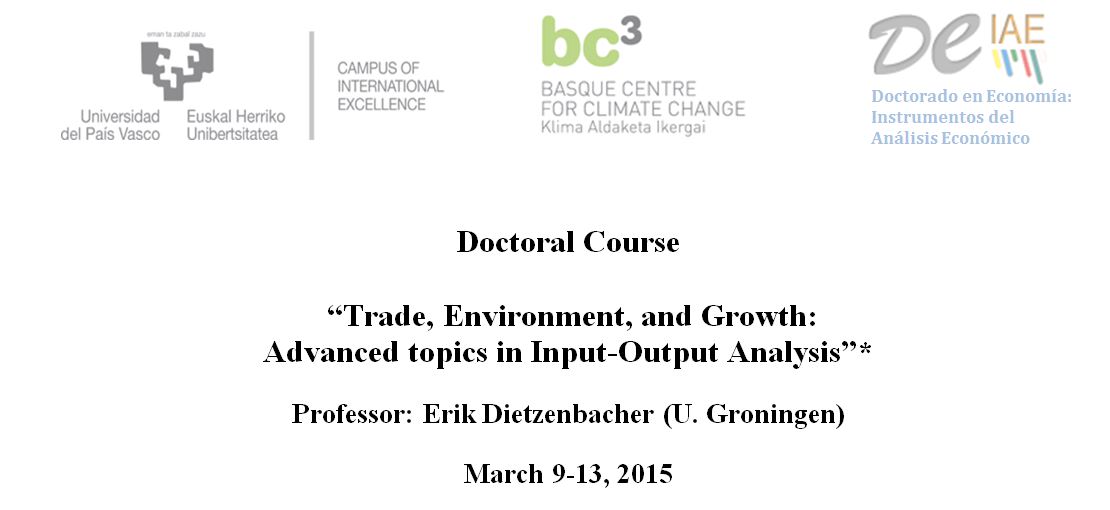Doctoral Course: Trade, Environment and Growth

Organizers
This course in jointly organized and financed by the Doctoral Program in Economics (Instruments of the Economic Analysis), the Basque Centre for Climate Change (BC3) and the Research group on Economics and the Environment (UPV/EHU, Gobierno Vasco, IT-799-13).
Description of the Course
This course applies input-output analysis to issues on trade, on environment, and on growth. For the production of commodities and services, industries depend on other industries for their intermediate products. More and more, such linkages between industries cross borders. Input-output analysis is a tool that takes such inter-dependencies in the production structure into full account. It has been applied to a wide variety of topics, ranging from agricultural and development economics to disciplines dealing with energy and environmental issues. The course will focus on three of such topics.
Typical questions are the following. How much high-skilled labor in the US is involved in satisfying the demand for cars by households in Australia, reflecting trade in production factors? What is the greenhouse gas footprint of China, or how large are the Chinese "exports" of greenhouse gas emissions? What percentage of the growth in German GDP between 1995 and 2009 was due to the increased household consumption in the rest of the EU? To analyze these questions, the World Input-Output Database will be used.
Dates and Timetable
March 9-13, 2015
Timetable: 10:00h – 13:00h.
Venue
Faculty of Economics and Business, Sarriko, University of the Basque Country ( Bilbao)
Outline of the Course
This course (for which some basic knowledge of matrix algebra is indispensable) discusses recent developments in input-output analysis with applications to issues on trade, on environment, and on growth. For the production of commodities and services, industries depend on other industries for their intermediate products. More and more, such linkages between industries cross borders. Input-output analysis is a tool that takes such inter-dependencies in the production structure into full account. It has been applied to a wide variety of topics, ranging from agricultural and development economics to disciplines dealing with energy and environmental issues. The course is centered around some of my own research topics. That is, I will discuss a set of papers (some of which have recently been published, are forthcoming, are in the process of completion, or are still work in progress). I will start the course by briefly “revisiting” the common toolbox in input-output economics. The lectures are given in five daily sessions, each taking 3 hours, and the schedule is as follows.
Outline of the Doctoral Course_Trade, Growth and the Environment
Faculty

Prof. Erik Dietzenbacher (U. Groningen)
Personal Profile: http://www.rug.nl/staff/h.w.a.dietzenbacher/
Loading...
